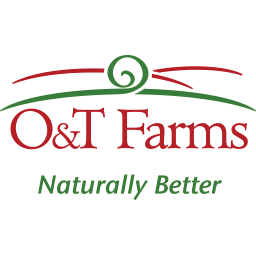The livestock industry is one of the main contributors to greenhouse gas emissions, and there is an increasing demand for the industry to reduce its carbon footprint.
In this roundtable, Progressive Dairy asked companies that provide methane-reducing feed additives for more information on their products. Continue reading to see what they had to say.
 Photo courtesy of Feedworks USA Ltd.
Photo courtesy of Feedworks USA Ltd.Agolin
Feedworks USA Ltd.
What it does: The product increases energy-corrected milk yields (on average by 4% or 3.2 pounds per day for an 80-pound cow) and feed efficiency by 4.4%. It reduces enteric methane emissions from the rumen by more than 10% per pound of milk.
How it works: The product impacts rumen microorganisms to decrease those that negatively impact performance while promoting those that improve rumen function (fiber-digesting bugs, for example). One of the effects is to reduce protozoa and increase total bacterial numbers, which leads to a reduction in enteric methane emissions, with the energy saved being captured for energy-corrected milk and liveweight gain. It is easily included in feeds, through a mineral mix, mill pack or farm pack. It is used at a level of just one gram per cow per day.
Cost per cow: Between 4 to 6 cents per cow per day. Average benefit in performance is 40 to 60 cents per cow per day.
Research: This product has been widely researched at institutes around the world. A 23-trial meta-analysis published in mid-2020 provides a summary of yield and efficiency response as well as methane reductions. This has been added to by a recent study on enteric methane from the University of California – Davis. It is currently fed to 1.5 million dairy cows around the world – 250,000 in the U.S. Major milk buyers Nestle (the largest buyer of milk in the world) and Barry Callebaut (largest chocolate manufacturer) are partnering with this company and dairy cooperatives to encourage dairies to include this product and thus help meet the net zero goals of U.S. dairying and major buyers of U.S. milk.
To learn more visit Feedworks USA.
 Photo courtesy of Blue Ocean Barns.
Photo courtesy of Blue Ocean Barns.Brominata
Blue Ocean Barns
What it does: This company has developed a proprietary, natural feed supplement from red seaweed that allows farmers to easily integrate it into cattle diets. When minimally processed and fed in small amounts to cattle, natural oils in this algae reduce methane production from the cow’s digestion system by more than 80%. As compared to other anti-methanogenic feed supplements, this product also suppresses gas over the entire lifetime of the animal.
How it works: The product, which makes up less than 0.3% of the cattle’s feed, prevents hydrogen from binding with enzymes that create wasted gas and redirects it to the production of volatile fatty acids that provide energy. Cows that eat the supplement get more nutritional use from their feed.
Cost per cow: To be determined.
Research: A recent study out of UC – Davis found that a supplement derived from red seaweed lowered farmers’ feed requirements by 14% with no diminishing of steers’ weight gain. The study also confirmed past research with dairy cows that the supplement cut methane production from digestion by more than 80%. The UC – Davis study demonstrated that methane reductions were sustained during the entire 147-day trial, which was longer and included more cattle than any prior study of the seaweed’s impact.
Studies of other methane-reducing technologies have shown that cattle digestive systems typically adapt, making those additives less effective over time. As importantly, the new study showed that the health and safety of the cattle were not compromised. Moreover, in a taste test conducted as part of the UC – Davis study, participants reported consistent flavor and tenderness compared with traditional beef. Similarly, following an earlier dairy trial, testers at Organic Valley’s headquarters in Wisconsin found that the seaweed did not impact the flavor or fragrance of the milk.
To learn more visit Blue Ocean Barns.
 Photo courtesy of DSM.
Photo courtesy of DSM.Bovaer, 3-NOP
DSM (Not currently registered for use in the U.S.)
What it does: The product is a feed additive for cows (and other ruminants, such as sheep and goats) researched and developed for more than 10 years. The feed additive contributes to a significant and immediate reduction of the environmental footprint of meat, milk and dairy products.
How it works: Just a quarter teaspoon of the product per cow per day suppresses the enzyme that triggers methane production in a cow’s rumen and consistently reduces enteric methane emission by approximately 30%.
Cost per cow: To be determined.
Research: This company is working with scientists from around the world on the product, as joint insights will enable farmers to make informed decisions and support adoption. Over the past years, an enormous amount of research has been conducted. In September, UC – Davis published a whitepaper on methane’s role in climate change and how California’s dairy industry can achieve climate neutrality. UC – Davis has recognized this product as the only solution to be in Category 1 (which is the only category of recommended interventions) with the highest potential impact, pending FDA approval. Considering California milk production of 18 billion kilograms (kg) in 2017, using nitrate on California dairy cows would reduce greenhouse gas emissions 1.09 billion kg CO2e and 3NOP 2.33 billion kg CO2e annually.
To learn more, visit DSM.









